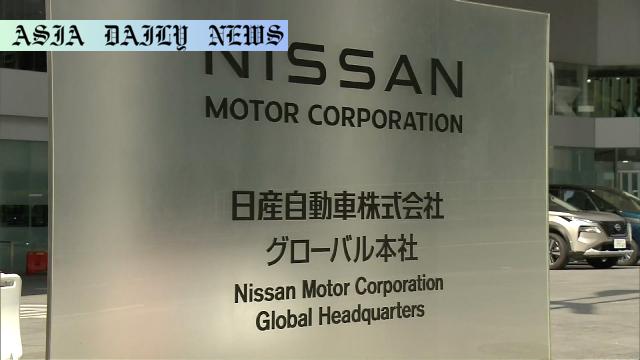Nissan closures: Governor urges automaker to minimize job impact as plant shutdowns risk local economic stability.
Kanagawa officials hold emergency meeting over Nissan closure reports.
Closures of Oppama and Hiratsuka plants may impact 3,900 jobs.
Governor Kuroiwa Yuji urges Nissan to minimize the economic fallout.
Nissan plans global workforce reduction and cost-cutting measures.

Emergency Meeting Amid Reports of Nissan Plant Closures
The Kanagawa Prefecture, located near Tokyo, held an urgent meeting on Monday following reports that Nissan Motor Co. may close its factories in the region. This decision, still pending final confirmation, has raised serious concerns among the local government and businesses. Reports suggest that Nissan’s facilities in Yokosuka City (Oppama plant) and Hiratsuka City, managed by a subsidiary, could be part of the automaker’s larger strategy to streamline global costs.
Governor Kuroiwa Yuji emphasized the significant economic impact of potential closures, stating it poses risks to employment and nearby businesses. With approximately 3,900 workers employed at the Oppama plant as of October last year, the ripple effect of these closures could destabilize the local economy. Businesses surrounding these factories, such as small eateries and convenience stores, heavily rely on Nissan’s workforce for daily commerce and profits.
Nissan’s Strategic Workforce Reduction Plan
Amid its global cost-cutting initiatives, Nissan is reportedly preparing to eliminate 20,000 jobs and close down seven production sites globally by fiscal year 2027. The Kanagawa factories under scrutiny have been integral to the company’s operations for years, adding to the gravity of the situation. However, Nissan representatives have clarified that no final decision has been made about the mentioned plants.
Nissan’s financial restructuring efforts stem from intense global competition and a push to transition to more sustainable, electrified vehicle production. While these efforts aim to secure the automaker’s long-term future, critics argue that such large-scale closures disrupt livelihoods and local communities. In particular, Nikkei reports indicate that cost-cutting hits manufacturing hubs, such as those in Kanagawa Prefecture, the hardest.
Economic and Social Implications
The closure of these factories would have widespread implications, not only disrupting thousands of workers’ lives but also causing a chain reaction of economic challenges. Nearby businesses, including those that cater exclusively to Nissan employees, are bracing for a sharp decline in revenue. For example, a local bento-box shop owner expressed his fears, stating that without the presence of factory workers, his livelihood would be irreversibly impacted.
Such developments highlight the vulnerability of local communities dependent on single industries or major corporations for employment. Economic experts often stress the importance of diversified economic activities to reduce the impact of similar situations in the future. However, with potentially only a few years until the closures are implemented, communities like Yokosuka and Hiratsuka may have limited time to adapt.
Future Outlook for Kanagawa and Nissan Employees
Moving forward, the Kanagawa prefectural government is expected to actively negotiate with Nissan to mitigate adverse impacts on local employment. Governor Kuroiwa indicated that the automaker has been urged to consider alternative solutions, such as relocating displaced workers or even seeking temporary operational measures.
For the affected workforce, this period of uncertainty demands resilience and adaptability. Training programs, skill development opportunities, and cross-industry employment paths may alleviate the rapidly impending challenges. Moreover, the central government could step in with policy measures aimed at supporting regions affected by Nissan’s dramatic restructuring.
Commentary
Nissan’s Closures and the Fragile Local Economy
Nissan’s announcements, though unconfirmed, shed light on the rising trend of global corporations adapting stringent cost-cutting initiatives. While practical from a managerial standpoint, it’s imperative to acknowledge how these restructuring plans deeply affect local economies and societies. In Kanagawa Prefecture, thousands of residents’ livelihoods and a thriving network of businesses are now under threat, with ripple effects that could last years.
It’s worth pondering the critical imbalance between corporate mandates and societal welfare. Sure, Nissan might secure cost efficiency and economic stability beyond 2027, but at what cost? Emergency meetings like those convened in Kanagawa illustrate the precarious dependency that towns and cities build on single industries. Much like Detroit in the U.S. auto downturn, Kanagawa’s Yokosuka and Hiratsuka need immediate proactive measures to lessen their reliance on Nissan.
Could Diversification Help Prevent Economic Disruption?
Diversification stands as a glaring opportunity missed. Cities reliant on one industry or sector often find themselves at high risk of economic downturns, laying bare the urgency of long-term municipal economic planning. Kanagawa, though blessed with proximity to Tokyo, must channel its resources into fostering new industries beyond automotive. By investing in the digital economy or renewable energy sectors, the prefecture can safeguard itself against further economic turbulence.
Affected Nissan employees also deserve targeted support from both local and nationwide authorities. Immediate retraining programs aligned with future trends, such as green technologies or AI-driven industries, can alleviate unemployment rates. Resilience defines how societies respond to dominos collapsing, and Japan’s reputation for economic pragmatism will hopefully shine through here.


